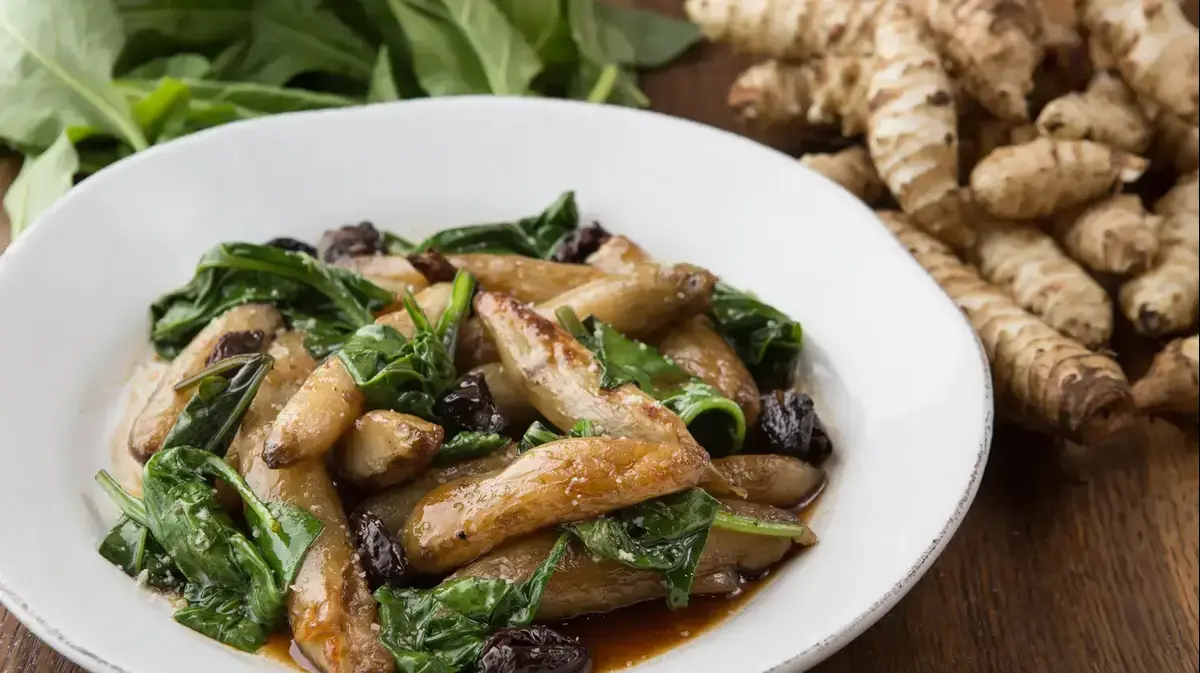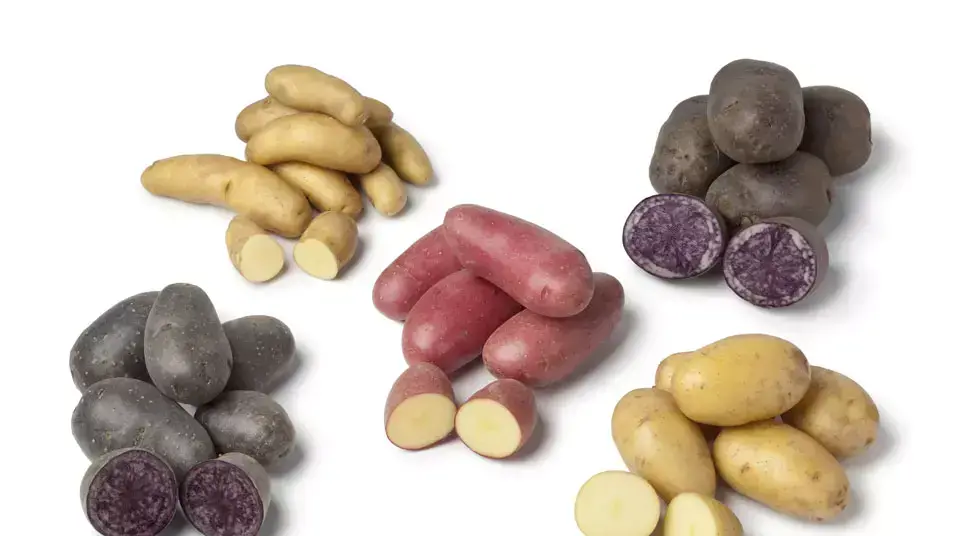health
Nutrition and diet
Preventive nutrition
Connect to the roots: the healthiest winter vegetables there are
Winter diet is completely different from what we are used to eating in summer.
Root vegetables that are reaching their peak right now are a healthy and delicious solution for maintaining a good and nutritious diet.
Here are some of the highlights
Tags
Jerusalem artichoke
Carrot
sweet potato
diet
Soups
winter
Guard
vegetables
vegetarianism
Walla!
health
Saturday, 06 November 2021, 22:48
Share on Facebook
Share on WhatsApp
Share on general
Share on general
Share on Twitter
Share on Email
0 comments
Everything you need to know about dietary fiber (Walla system!)
Although the Israeli autumn is different from its European counterparts and it tends to simply end one day without warning, here too the earth comes to life after a particularly long and hot summer.
This is a great time to enjoy the vegetable roots that will be part of our nutritional heating system in the winter.
Why roots?
The roots are actually the part of the plant that is underground, and as such they absorb the vitamins and minerals that are underground.
Therefore the taste of the roots is concentrated and earthy, their texture is dense and rich and so are their health benefits.
More on Walla!
9 signs that you are not eating healthy enough
To the full article
Here are some of the healthiest roots whose season is starting now:
Guard
Take care of your digestive system.
Bundle of Guard (Photo: ShutterStock)
Fennel strengthens the immune system thanks to its high content of vitamin C, about 20 percent of the recommended daily amount.
Vitamin C is a powerful antioxidant.
Fennel contains other vitamins that are important to the body such as folic acid, vitamin A and B vitamins. Fennel also contains good amounts of iron, potassium and magnesium.
In addition, it is a source of the calcium mineral that protects bone health, prevents osteoporosis and reduces blood pressure.
In addition to all these, fennel lowers blood cholesterol thanks to a large amount of dietary fiber.
It relieves abdominal pain, counteracts gastrointestinal cramps, relieves gas, bloating and constipation, and by and large, ensures that your digestive system functions properly and regularly.
celery root
Contains a lot of vitamins and minerals.
Celery root (Photo: ShutterStock)
Celery root is a good source of vitamin K and vitamin C, and like all vegetables it does not contain a large amount of fat.
It also contains magnesium, potassium, phosphorus and dietary fiber.
In addition, it is also rich in powerful antioxidants that contribute to the inhibition of inflammatory processes.
Jerusalem artichoke
Maintains a stable level of blood sugar.
Jerusalem artichoke (Photo: Nimrod Saunders)
Apart from its delicate and good taste, Jerusalem artichoke is also rich in iron, potassium and magnesium.
It is also full of dietary fiber (one cup of Jerusalem artichoke provides 205 grams of fiber which is 10 percent of the recommended daily intake) and is an important source of inulin - a type of starch that is broken down in the body differently from other starches and helps maintain a stable blood sugar level.
It is therefore especially recommended for diabetics.
Onion
Not just taste.
Onion (Photo: ShutterStock)
It is on the daily menu of many of us, but have you ever stopped to think about what onions add to you besides taste?
Onions are a good source of vitamin C, sulfur compounds, flavonoids and phytochemicals.
Animal studies and experiments support the claim that eating onions, which contain sulfur phytochemicals, may lower cholesterol levels.
In addition, due to the high content of substances called carcinogen and anthocyanin it is also considered to have anti-cancer properties.
Carrot
Contributes to strengthening vision and strengthens the immune system.
Bundle of carrots (Photo: ShutterStock)
Carrots are one of the most popular vegetables, in all months of the year, probably due to the fact that they are sweet and healthy.
Carrots contain B vitamins, a high concentration of vitamin A and vitamin K, in addition to the important content of minerals such as potassium, iron, calcium and a very large amount of beta carotene.
The best known fact about carrots is that it contributes to vision, but in addition it also strengthens the immune system, contributes to lowering blood pressure, prevents cardiovascular disease and is beneficial for the skin and respiratory system.
Ginger
Contains important compounds.
Ginger (Photo: ShutterStock)
The appearance of the root itself is not very stimulating, but it is beneficial in many different forms, whether it is fresh, dried, powdered, peeled, oiled or extracted.
Ginger, just like hot pepper, contains capsaicin, which several studies have found to be linked to a decrease in mortality, and that it has the potential to protect against cardiovascular disease, and improve the body's metabolism.
Ginger can also relieve other stomach problems thanks to the digestive enzyme it contains zingibain which helps the body break down protein.
The enzyme helps the food you eat pass through the system more easily, resulting in a reduced feeling of bloating, gas or constipation.
sweet potato
Rich in beta carotene.
Sweet potato (Photo: ShutterStock)
Potato is rich in potassium, which plays an important role in metabolism, strengthens muscles, is beneficial for heart health and nervous system function.
One sweet potato provides 850 milligrams of the important mineral.
It also has adequate amounts of magnesium, an essential mineral that participates in about 300 processes in the body and many suffer from a severe deficiency in it without knowing it.
It may help you prevent heart disease, hypertension and diabetes, migraines and muscle cramps, including the heart muscle, thanks to the large amounts of magnesium it contains.
Of all the orange vegetables and fruits, sweet potato is the richest source of beta carotene pigment which contributes to reducing the risk of cancer and reduces oxidative processes that can damage DNA structure, by encouraging intercellular communication.
Beta-carotene is also a source of vitamin A, which is essential for the proper functioning of the body and affects night vision and the visual system, skin function and immune system activity.
turnip
Gentle sweetness.
Turnip (Photo: ShutterStock)
Turnip has a delicate taste, but the smaller it is, the sweeter it will grow.
Turnip contains a small amount of sodium (salt) and is a good source of vitamin B6 and solarium.
Solenium is needed by our body in small amounts for the proper functioning of various groups of enzymes as well as for the proper functioning of the thyroid gland that regulates metabolism.
The turnip can be eaten in its fresh or pickled form and the leaves can be cooked.
Share on Facebook
Share on WhatsApp
Share on general
Share on general
Share on Twitter
Share on Email
0 comments




